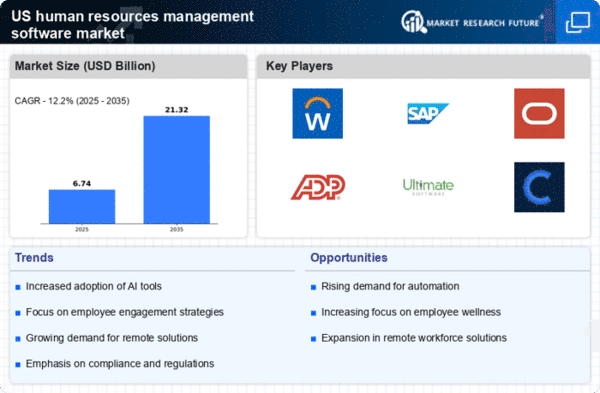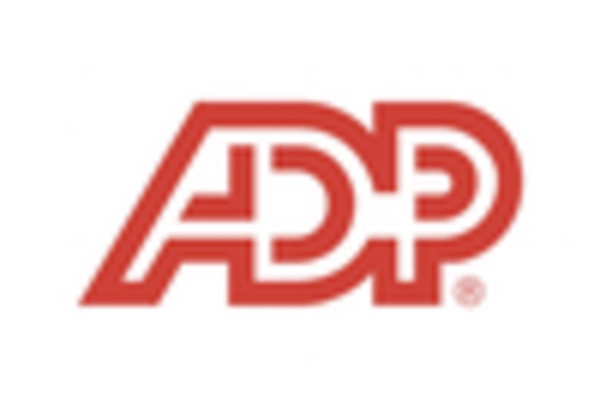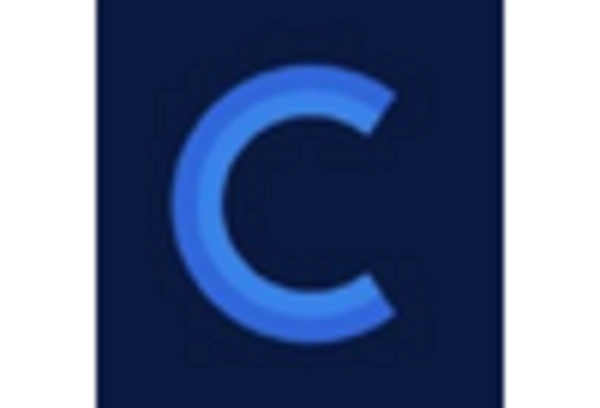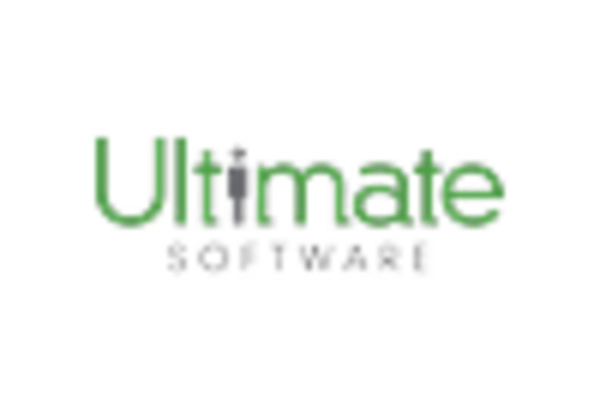Growing Demand for Automation
The human resources-management-software market is experiencing a notable surge in demand for automation solutions. Organizations are increasingly seeking to streamline HR processes, reduce manual tasks, and enhance operational efficiency. Automation tools can significantly decrease the time spent on repetitive tasks, allowing HR professionals to focus on strategic initiatives. According to recent data, approximately 60% of HR departments in the US have adopted some form of automation in their processes. This trend is likely to continue as companies recognize the potential for cost savings and improved productivity. As a result, the human resources-management-software market is poised for growth, driven by the need for more efficient and effective HR operations.
Rise of Remote Work Solutions
The human resources-management-software market is adapting to the rise of remote work solutions. As more organizations embrace flexible work arrangements, there is a growing need for software that facilitates remote employee management, communication, and collaboration. Tools that support virtual onboarding, performance tracking, and employee engagement are becoming essential for HR departments. Recent surveys indicate that over 50% of US companies have implemented remote work policies, which has led to an increased demand for specialized HR software. This shift is expected to continue, driving innovation and growth within the human resources-management-software market.
Regulatory Compliance Requirements
The human resources-management-software market is heavily influenced by the evolving landscape of regulatory compliance. Organizations are required to adhere to various labor laws, data protection regulations, and industry standards. This necessity drives the demand for software solutions that can assist in maintaining compliance and managing employee data securely. In the US, the implementation of regulations such as the General Data Protection Regulation (GDPR) and the California Consumer Privacy Act (CCPA) has heightened the focus on compliance. As a result, HR software providers are increasingly incorporating compliance features into their offerings, which is likely to enhance the attractiveness of the human resources-management-software market.
Focus on Data-Driven Decision Making
The human resources-management-software market is witnessing a shift towards data-driven decision making. Organizations are increasingly leveraging analytics to gain insights into employee performance, engagement, and retention. This trend is supported by the growing availability of data analytics tools that can be integrated into HR software. Approximately 70% of HR leaders in the US report that data analytics has become a critical component of their decision-making processes. By utilizing data effectively, companies can make informed decisions that enhance workforce management and improve overall organizational performance. Consequently, this focus on analytics is likely to propel the growth of the human resources-management-software market.
Emphasis on Talent Acquisition and Retention
The human resources-management-software market is significantly impacted by the emphasis on talent acquisition and retention strategies. Organizations are increasingly recognizing the importance of attracting and retaining top talent in a competitive job market. This focus has led to a surge in demand for HR software that offers advanced recruitment tools, employee engagement features, and performance management capabilities. Data suggests that companies investing in talent management solutions experience a 30% improvement in employee retention rates. As businesses strive to enhance their workforce quality, the human resources-management-software market is likely to expand, driven by the need for effective talent management solutions.
















